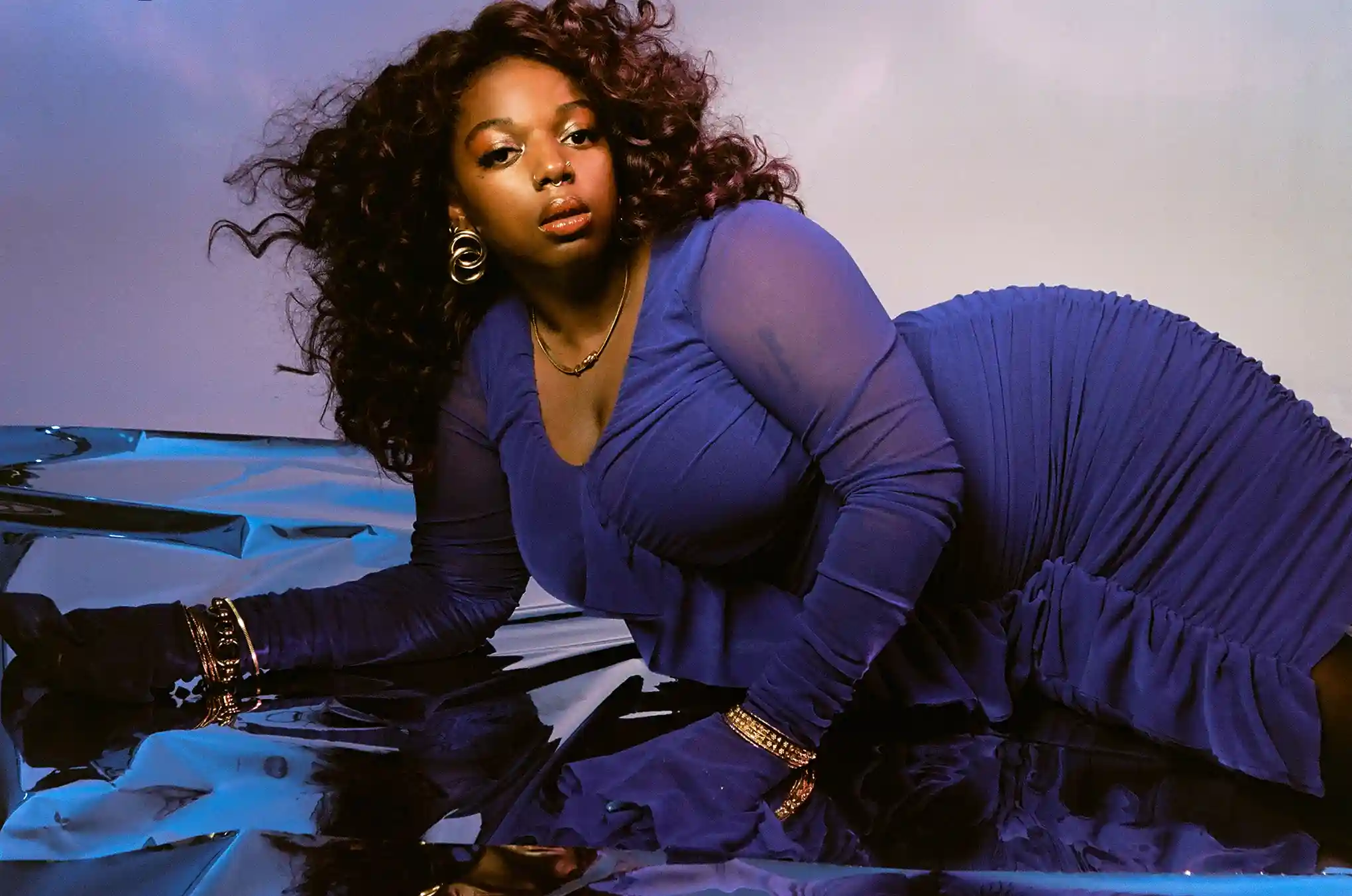The Guardian
KeiyaA


When KeiyaA dropped her debut album Forever, Ya Girl, on Bandcamp in March 2020, she didn’t have internet service on her phone, and had to go downstairs to connect to the local video store’s wifi to post about the release on her Instagram. “I just remember letting hours pass by and going back downstairs and seeing thousands of likes. I’ve never gotten thousands of likes ever in my life,” says the Brooklyn-based experimental instrumentalist, singer and producer.
KeyiaA is touring Europe for the first time this week, including six gigs across the UK, but despite the success, releasing an album during the early days of a pandemic has been “bittersweet and hella confusing”, she says. “I’m still very much a regular person, like everyone else. So I’ve been dealing with the shock and confusion. The constant shifts. Not knowing what’s going to happen next. I’m already an anxious person,” she admits over Zoom. There’s a silver lining. “I’ve been a professional musician for the first time. I’ve been cutting my teeth and learning the ropes and I’m just so fucking grateful that this is my life.”
Forever, Ya Girl is a silky yet knotty collection of rich, introspective R&B songs. Her inspirations include Missy Elliot, Timbaland, Brandy, Darkchild; “I am really obsessed with In Utero by Nirvana and that style of writing,” she says. The first track on the album, I Thot There Was One Wound in This House, There’s Two, opens with the line “Why won’t you love me?”, and it sets the tone for a questioning album that loops around themes of despair, isolation and spirituality. “A lot of what I was feeling during the time that I wrote that music was feeling like I was broken and needed to be fixed. But also knowing that I really wasn’t broken. I’m in pain, and I feel despair. Some of it, I think, is my fault. Some of it, I think, is other people’s fault. Some of it, I think, is a systemic thing. Either way, we gotta figure it out.” When she first moved to New York, “black and relatively poor”, finding spirituality helped: “Maybe there’s a greater battle happening than what we’re experiencing in the physical present.”
Those life experiences are the heart of the album. “I really love the idea of double entendres, multiple meanings to things. I feel like my romantic issues, or my issues with sex, are similar to my issues with money.” Those overlapping meanings have, in turn, meant that people have told her that her songs have synthesised their feelings in a way they couldn’t articulate before; that the album has healed them, helped them through the pandemic and kept them alive through hard times.
KeiyaA was born Chakeiya Richmond in 1992 in Chicago, and lived with a grandmother who had a Casio keyboard: “I just remember being relentless in my pursuit to learn songs.” She recalls there being good funding for arts in Chicago and was always in a music class. “I was going through the motions, but I had a really passionate band director who was like: ‘You have potential.’ And my mom would appreciate it because it meant that I would be supervised for a long time when she was at work.”
The real awakening came when she moved to New York six years ago and took a desk job at a start-up ticketing platform. “I was a professional. I was making a salary, but playing shows at night. That’s when I said: this is who I’m supposed to be.”
Forever, Ya Girl showcases KeiyaA’s talents not just as a writer, but as a multi-instrumentalist: “The primary instrument that I’ve studied the most is saxophone. I play a couple of other woodwinds, a little bit of clarinet. I play piano, mainly as a function to write songs,” she says, modestly. For the album, she also sampled, played keys and synthesisers and some physical drums. Having such a hand in every aspect of her music, I ask when she knows a song is done. “A song is never finished. I love improvisation and I love performing music because it gives you an opportunity to rearrange. The song has space to change.” And on tour, “because there are other musicians, they’re having their own conversation with the song”.
She wondered if she was making a bad decision going on tour amid a pandemic that hasn’t yet died down. “Thankfully, I’ve had friends that are artists to talk to – we’re all experiencing this. At first I was wrestling with a lot of guilt and stress. Now, I’m allowing myself to settle into the exciting parts.” After the tour, she will “take some time to work on new music and recentre and ground myself”. What else is in her future? “Sleep!”